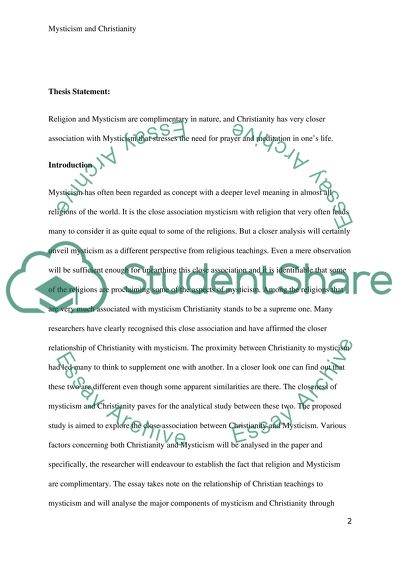Cite this document
(“Explanation of Mysticism And Its Relation To Christianity Research Paper - 1”, n.d.)
Explanation of Mysticism And Its Relation To Christianity Research Paper - 1. Retrieved from https://studentshare.org/religion-and-theology/1576163-explain-mysticism-and-how-it-relates-to-christiany
Explanation of Mysticism And Its Relation To Christianity Research Paper - 1. Retrieved from https://studentshare.org/religion-and-theology/1576163-explain-mysticism-and-how-it-relates-to-christiany
(Explanation of Mysticism And Its Relation To Christianity Research Paper - 1)
Explanation of Mysticism And Its Relation To Christianity Research Paper - 1. https://studentshare.org/religion-and-theology/1576163-explain-mysticism-and-how-it-relates-to-christiany.
Explanation of Mysticism And Its Relation To Christianity Research Paper - 1. https://studentshare.org/religion-and-theology/1576163-explain-mysticism-and-how-it-relates-to-christiany.
“Explanation of Mysticism And Its Relation To Christianity Research Paper - 1”, n.d. https://studentshare.org/religion-and-theology/1576163-explain-mysticism-and-how-it-relates-to-christiany.


